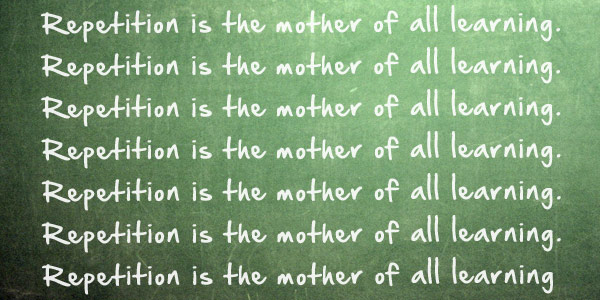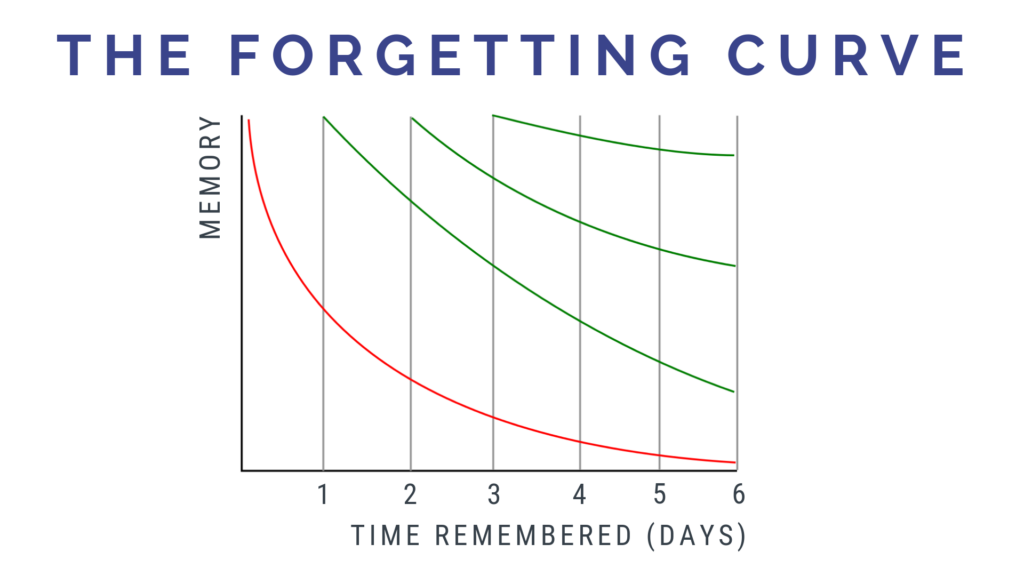Learning is always exciting. As humans, anything new is exciting. However, the ‘newness’ wears off pretty soon and that is one of the main reasons that hinder committing new stuff to memory. Modern research, however, has identified at least 3 proven ways that a student can use to revise subjects like a pro and commit knowledge to your memory.

The need for revision of subjects or knowledge is mainly due to the two types of memories that humans have. There are some fundamental differences in how these two memories function and the purposes they serve
Table of Contents
The two types of human memories
Memory is of two types
- Short Term
- Long Term
Short term memory is employed by the brain when the information to be retained and recalled is for a short duration of time.
For example, you need to remember a phone number long enough for you to scribble it on to a piece of paper. You need to remember the 5 items you need to purchase from the market today.
Characteristics of Short Term Memory
- Retention is immediate with minimal effort.
- The brain trashes the information shortly after the task is completed.
Long term memory is the opposite. You commit something to memory for an extensive period of time.
For example, your knowledge of English vocabulary. Your knowledge of how to add or multiply numbers.
Characteristics of Long Term Memory
- Retention of information is for a longer period of time
- Length of retention is proportional to usage over time
- Retention happens only by repetitive efforts
The need to commit knowledge to long term memory
As a student, short term memory is a lot less useful than long term memory. You will need to remember new things learnt for a longer duration of time.
Hence the need of the hour is to move stuff from short term memory to long term memory. What you learn today in the class moves into your short term memory. You will forget most of it within 24 hours due to the way short term memory works.
The only way to remember things for a longer time is to commit them to long term memory. Hence you need to move knowledge from short term memory to long term memory. That is where revision of subjects becomes important.
Ways to move knowledge to long term memory
Moving knowledge to long term memory involved telling your brain that the stuff you have learnt is important to you. How do you do that?
- Repetition
- Incremental Learning
- Forget to Remember
Revise Subjects by Repetition
Revision via repetition is a time tested method of committing knowledge to long term memory. It is this method that is used to ingrain fundamental concepts of math like operations on numbers into your brain for life. It is this method used to pick up the alphabets and your basic vocabulary.

Repetition helps because you are signalling to the brain that stuff that I am repeatedly learning is important to me. Hence it needs to be made available whenever I require it. Therefore move it from short term memory to long term memory.
This is also the very reason teachers give homework – to enforce revision.
Revise Subjects through Incremental Learning
The human mind learns by association. We learn by linking disparate facts that entered our mind at different points in time.
Knowledge is arranged in the form of onion in our mind to put it figuratively. What is learnt first is at the core. New information is linked up to the old and stored as the next layer. This process goes on throughout one’s lifetime.

This is the reason that most educational boards have an incremental curriculum. What a student learns in class 3, she also learns in class 5. This time around a few additional aspects get thrown in.
A lesson on the digestive system starts in class 3 by talking about the key steps of digestion. In class 5, this is augmented by talking of the different organs that aid the digestion process. Class 7 learning takes this further by talking of certain enzymes and digestive juices that play a role. Class 9 goes, even more, deeper by exploring the chemical reactions that take place during digestion.
This is done essentially to help the brain learn in increments through the process of layering.
Revision too can happen in the same way. Start by committing the key 5 points to the brain. Build upon these 5 points to learn 5 additional points that link up to these 5 main points. Use a mind map to facilitate learning. Some of the best mind map tools are FreeMind, Freeplane and Mindomo.
Revise Subjects by letting your brain forget
This sounds silly but research has validated this too. What you forget, you tend to remember it more clearly in the future. This happens because the brain has experienced the trouble you had to go through for having forgotten something.
Forgetting that one key item from the grocery list and having had to go back for that one item leaves an indelible imprint on the mind. As a response, your mind constructs safeguards to prevent something similar from happening in the future. Probably, it insists you make a written list or compose a mnemonic that helps you recall without mistake or even commit the list several times to the mind that the chances of repeating the mistake are next to none.
As a student, you might have experienced this. The mistakes you made that made you lose marks in a test are rarely repeated in the subsequent tests/exams. Hence the idea of repeated tests and preparatory exams that help you by highlighting your mistakes.
Ebbinghaus Forgetting Curve

The Ebbinghaus forgetting curve simply states that with every successive revision, the rate at which you forget slows down. Revision not only helps commit knowledge to memory but also slows down the rate at which you forget. Every successive revision helps you remember and recall stuff over longer and longer periods of time.
Additional Reading
9 Revision strategies shared by students

